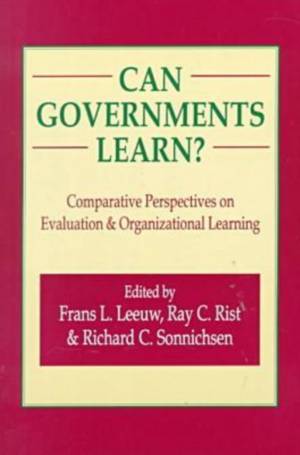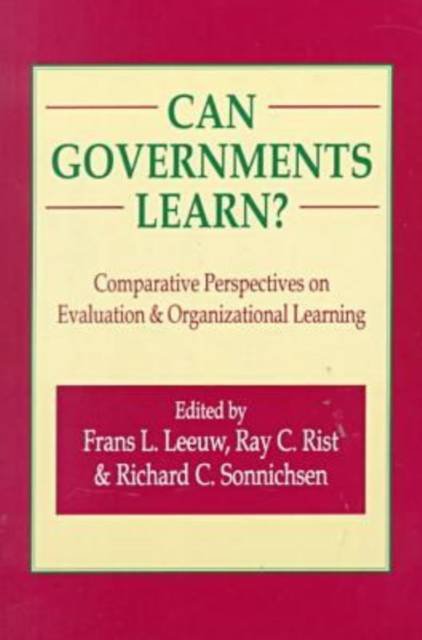
- Afhalen na 1 uur in een winkel met voorraad
- Gratis thuislevering in België vanaf € 30
- Ruim aanbod met 7 miljoen producten
- Afhalen na 1 uur in een winkel met voorraad
- Gratis thuislevering in België vanaf € 30
- Ruim aanbod met 7 miljoen producten
Zoeken
Can Governments Learn?
Comparative Perspectives on Evaluation and Organizational Learning
€ 64,95
+ 129 punten
Omschrijving
There is continual concern about the ability of governments to perform the duties and responsibilities that their citizens have come to expect from them. Many citizens view government as inept, arthritic, and dedicated to the preservation of the bureaucratic status quo. As we close the twentieth century, the challenge for democratic governments is to become adaptive, flexible, innovative, and creative. In short, they need to become learning organizations. This book explores what it will take for governments to break out of their traditional ways of approaching problems and leam new approaches to finding solutions.Can Governments Learn? examines organizational learning in the public sector. It seeks to understand what role policy and program evaluation information can play in helping governments to learn. Among the democratic societies that are studied are Belgium, Canada, the Netherlands, Sweden, and the United States. Their governmental systems have produced and learned from evaluation information in quite different ways. Significantly, the studies documented here show that the concept of organizational learning has vitality and applicability cross-nationally.Can Governments Learn ? evaluates preconditions for governmental learning as well as the institutional and human resource factors that contribute to the process. This is the third volume in the comparative policy analysis series. It is essential for policymakers, government officials, and scholars interested in improving the performance of governments.
Specificaties
Betrokkenen
- Uitgeverij:
Inhoud
- Aantal bladzijden:
- 212
- Taal:
- Engels
- Reeks:
Eigenschappen
- Productcode (EAN):
- 9780765806581
- Verschijningsdatum:
- 31/10/1999
- Uitvoering:
- Paperback
- Formaat:
- Trade paperback (VS)
- Afmetingen:
- 163 mm x 229 mm
- Gewicht:
- 344 g

Alleen bij Standaard Boekhandel
+ 129 punten op je klantenkaart van Standaard Boekhandel
Beoordelingen
We publiceren alleen reviews die voldoen aan de voorwaarden voor reviews. Bekijk onze voorwaarden voor reviews.






